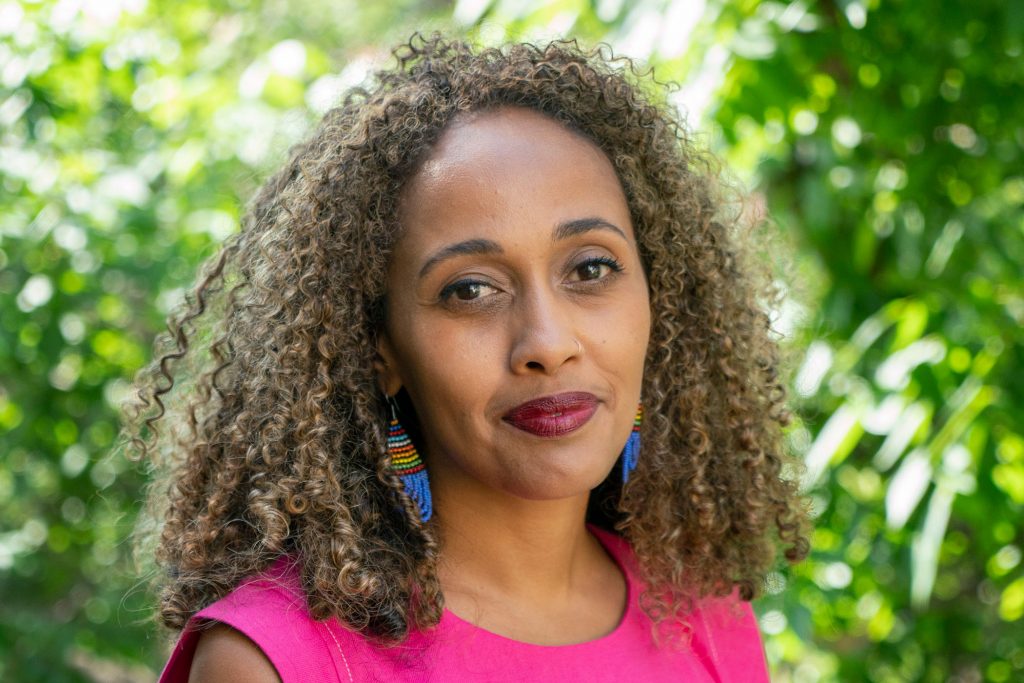The United States has one of the highest number of executions in the world. A virtual panel gathered at BC Law on March 1, condemned the practice, and called for its abolition.
Kacey Keeton, a federal defender in Alabama, stated what has become painfully obvious in the recent furor over racial injustice, that the practice disproportionately hurts people who are poor, uneducated, and from communities of color.
Her point was seconded by Professor Alexis Hoag (above), an associate research scholar at Columbia Law School, who also argued that the death penalty is used to exert social control over Black and poor people and is almost exclusively applied when the victim is white. “The implication is the lives of Black murder victims are not as valuable,” she said. “The justice system does not seek retribution for those losses of life.”
The panelists also observed that the death penalty has been a political tool in America, and cited several examples. President Clinton signed the Federal Death Penalty Act of 1994, which augmented the types of crimes that could be federally prosecuted as death penalty offenses. Following the Oklahoma City bombing, the Antiterrorism and Effective Death Penalty Act of 1996, intended to speed up executions, won broad bipartisan support. And, despite the fact that President Obama was thought to be against the death penalty, it is widely believed that it was not politically advantageous for him to abolish it.
More recently, however, the public has begun to take issue with the disparate impacts of the death penalty, an awakening that has created momentum and an interest in abolishing it, according to panelist Neil M. Fox, a criminal defense lawyer in Seattle, Washington. He said identifying allies is critical in this movement. Some of the political forces in his state who now favor repealing the death penalty come from conservative areas, including Walla Walla where the state’s Death Row is located. Washington’s prison guard community, too, is behind the effort, demonstrating the creative alliances that can be formed.
Another dimension of the fight against the death penalty is the plight of juvenile offenders. Some current activism can be traced to growing awareness of the brain development of these youth. Trauma during developmental years is now being studied, and scientific understanding has created “an amazing shift in public consciousness,” Fox said.
Even life without parole, in certain instances, is not an appropriate sentence, added Keeton, who argued for thinking creatively about alternatives.
The bottom line is that excessive sentences need to be addressed, said Professor Hoag. “We stand alone as a country that sentences children to die in prison.”
The event, titled “Kill the Death Penalty: Federal Executions and the Struggle for Abolition,” was co-sponsored by the American Constitution Society, National Lawyers Guild, BC Law Democrats, and Criminal Law Society.
—Zoe Atchinson ’22


